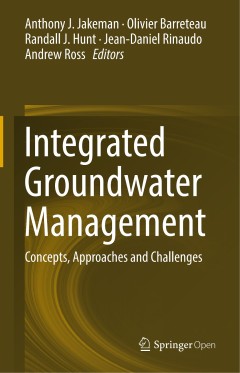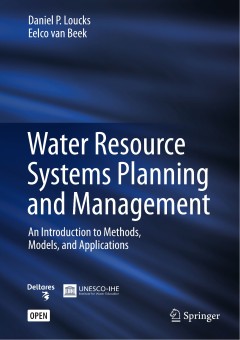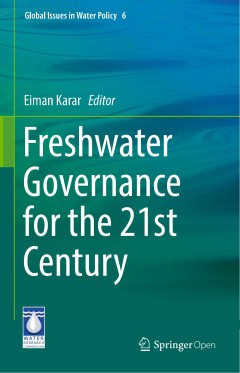Filter by

Decolonising blue spaces in the anthropocene: freshwater management in Aotear…
This open access book crosses disciplinary boundaries to connect theories of environmental justice with Indigenous people’s experiences of freshwater management and governance. It traces the history of one freshwater crisis – the degradation of Aotearoa New Zealand’s Waipā River– to the settler-colonial acts of ecological dispossession resulting in intergenerational injustices for Indi…
- Edition
- -
- ISBN/ISSN
- 9783030610715
- Collation
- xii, 494p. : ill
- Series Title
- Palgrave Studies in Natural Resource Management
- Call Number
- 363.700993 MEG d

Integrated groundwater management : concepts, approaches and challenges
The aim of this book is to document for the first time the dimensions and requirements of effective integrated groundwater management (IGM). Groundwater management is a formidable challenge, one that remains one of humanity’s foremost priorities. It has become a largely non-renewable resource that is overexploited in many parts of the world. In the 21st century, the issue moves from how to si…
- Edition
- -
- ISBN/ISSN
- 9783319235769
- Collation
- xiii, 762p. : ill.
- Series Title
- -
- Call Number
- 628.114 INT i

Water resources systems planning and management : an introduction to methods,…
This revised, updated textbook presents a systems approach to the planning, management, and operation of water resources infrastructure in the environment. Previously published in 2005 by UNESCO and Deltares (Delft Hydraulics at the time), this new edition, written again with contributions from Jery R. Stedinger, Jozef P. M. Dijkman, and Monique T. Villars, is aimed equally at students and pro…
- Edition
- -
- ISBN/ISSN
- 9783319442341
- Collation
- xx, 624p. : ill.
- Series Title
- -
- Call Number
- 333.91 LOU w

Freshwater governance for the 21st century
The objective of this book is to broadly illustrate the key aspects of water governance, mapping the spectrum of decision-making from techno-centric and eco-centric approaches, to hybrid concepts and people-centric approaches. Topics covered include the challenges for water-governance models, the polycentric model, the integration challenge, water in the decision-making hierarchy, and the rise …
- Edition
- -
- ISBN/ISSN
- 9783319433509
- Collation
- xxvii, 250p. : ill.
- Series Title
- -
- Call Number
- 343.0924 FRE f
 Computer Science, Information & General Works
Computer Science, Information & General Works  Philosophy & Psychology
Philosophy & Psychology  Religion
Religion  Social Sciences
Social Sciences  Language
Language  Pure Science
Pure Science  Applied Sciences
Applied Sciences  Art & Recreation
Art & Recreation  Literature
Literature  History & Geography
History & Geography